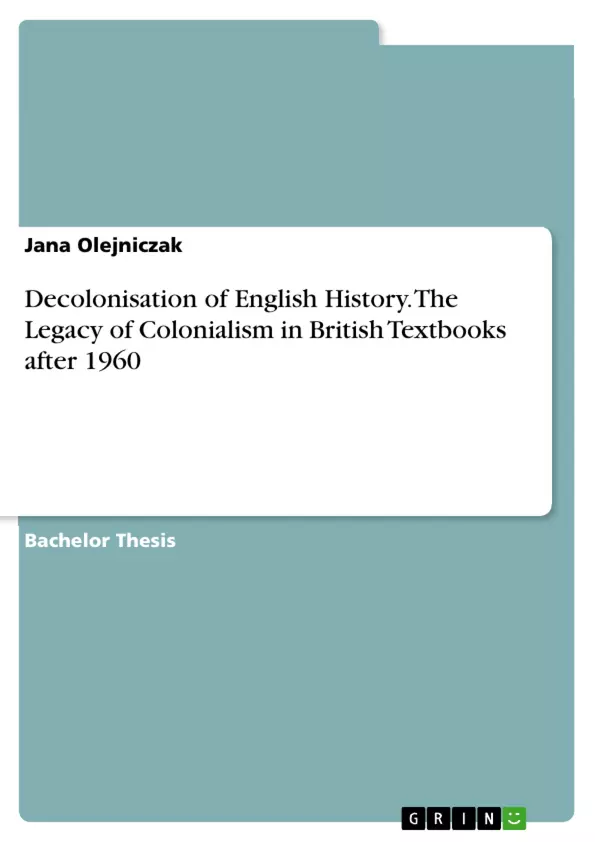The imperial legacy of the Colonial Age is ever-present in our modern society. Although the belief in Western superiority was implemented in the era of European colonialism, institutional racism, cultural prejudices, and xenophobia are contemporary consequences of Europe's past as Colonial Superpower. Europe’s latest standing towards refugees has constructed the resurgence of an anti-immigrant and nationalist sentiment within various European countries; imperialistic convictions, therefore, still operate within humankind.
In particular, the national belief in Britain’s exceptionalism, as the mightiest European colonial power within the 19th century, controverts with its modern multicultural society. Which policymakers have influenced the representation of what it means to be ‘British’ after the powerful Empire had ended? To what extent did the British society undergo a change, concerning a tolerant and accepting attitude towards immigrants from former British colonies? Most importantly, how accurate has knowledge about the British involvement during the Colonial Age been represented within different time periods?
Inhaltsverzeichnis (Table of Contents)
- Introduction
- State of Research
- Methodology
- Rise and Fall of the British Empire
- Concepts and Implementation of British Imperialism
- Political Representations of Britishness
Zielsetzung und Themenschwerpunkte (Objectives and Key Themes)
This thesis aims to investigate the connection between British imperialism and education, specifically exploring the portrayal of British colonial rule in secondary textbooks published in the United Kingdom after 1960. It aims to define the duration of imperial education's influence on textbooks and analyze how this influence impacted the decolonization process in the United Kingdom.
- The legacy of British imperialism and its enduring influence on modern society
- The role of education in shaping perceptions and understanding of colonialism
- The evolution of British identity and its relationship with the post-colonial era
- The impact of imperial education on the representation of British colonial rule in textbooks
- The influence of political and societal changes on the portrayal of the British Empire's legacy
Zusammenfassung der Kapitel (Chapter Summaries)
The first chapter introduces the research topic and provides an overview of the state of research concerning the representation of British colonialism in textbooks. It outlines the methodology used in the thesis and highlights the central research question, which examines the relationship between imperialism and British education. The chapter also delves into the theoretical framework, discussing the concept of Eurocentrism and its historical significance.
The second chapter focuses on the rise and fall of the British Empire, exploring the emergence and implementation of imperialistic and Eurocentric theories in the United Kingdom and its former colonies. The chapter examines the concept of indirect rule and analyzes the political representations of Britishness that shaped the formation of a national identity.
Schlüsselwörter (Keywords)
British imperialism, decolonization, education, textbooks, Eurocentrism, colonial rule, British identity, postcolonialism, political representations, cultural legacy, societal changes.
Frequently Asked Questions
How is the British Empire portrayed in textbooks after 1960?
The portrayal has evolved from a Eurocentric, imperialistic view to a more critical analysis, though the legacy of "British exceptionalism" still influences how history is taught.
What is the impact of imperial education on modern British identity?
Imperial education shaped a national belief in exceptionalism, which sometimes conflicts with Britain's modern multicultural reality and its attitudes toward immigrants from former colonies.
What does "decolonization of history" mean?
It refers to the process of removing colonial biases from historical narratives and including the perspectives and experiences of the colonized peoples.
How did Eurocentrism influence historical knowledge?
Eurocentrism placed Western values and achievements at the center of history, often marginalizing or misrepresenting the cultures and contributions of non-European societies.
What role did policymakers play in shaping 'Britishness'?
Policymakers influenced curriculum standards and textbook content to reflect specific political and societal views of national identity during and after the fall of the Empire.
- Quote paper
- Jana Olejniczak (Author), 2023, Decolonisation of English History. The Legacy of Colonialism in British Textbooks after 1960, Munich, GRIN Verlag, https://www.grin.com/document/1368392



